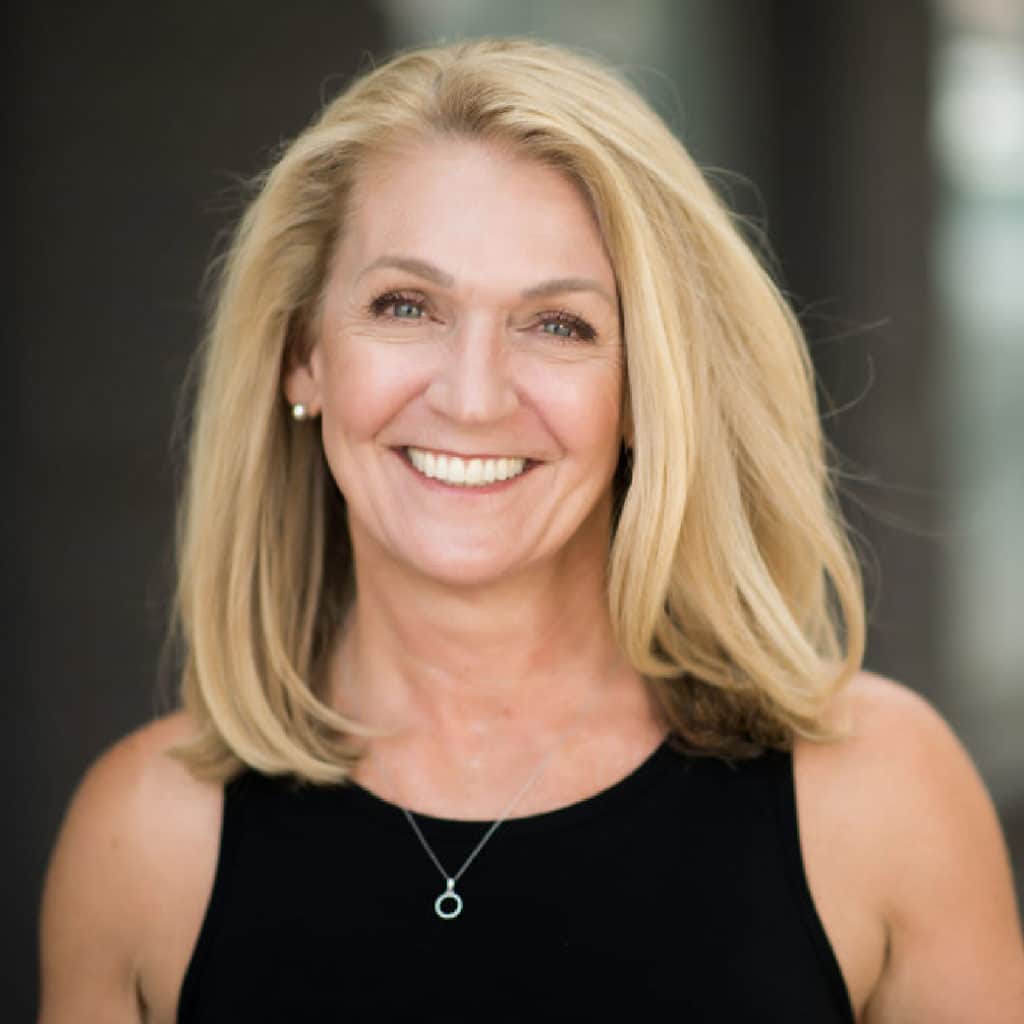Q&A with Lorie Lambert, Groups360 vice president of brand engagement
After 28 years with Marriott International, Lorie Lambert joined Groups360 as vice president of brand engagement. During her long career with Marriott, she rose through the sales ranks to become a global account director before retiring from the hotel brand and joining Groups360.

After nearly three decades in the hospitality industry, Lambert has embraced a lot of changes — the downturn after 9/11, the Great Recession in 2007-2008, and now navigating the rapidly shifting tides caused by the novel coronavirus. Groups360 sat down to discuss her perspective on what’s to come.
Q: How did you first get into hospitality?
A: Many people in the industry majored in hospitality in college while others sort of fell into it — I’m in the second category. I was working temporary assignments for Kelly Services and experiencing many different industries. I accepted an assignment in the sales department of the Holiday Inn Denver Downtown booking tour and travel business. It stuck — I loved hospitality, I loved travel, I loved sales. I guess you could say the rest is history.
Q: What led you to Groups360?
A: I was excited about the GroupSync technology from the beginning. I thought it would be the perfect tool for the global sales organization. The access GroupSync has to market data allows for a very consultative sell. It’s not uncommon to have a customer say to a global sales representative, “You know what? We want to meet in March somewhere in the Southeast.” Well, Marriott has more than 400 properties in Florida alone. GroupSync has all the tools, market data and algorithms to narrow down to the most relevant options within seconds, allowing the GSO or planner to send the RFP to the relevant properties.
Q: What inspired your decision to join Groups360?
A: Advancing the industry. GroupSync is going to change the meetings industry, and I wanted to be a part of that. It is a better tool for planners and hoteliers. It provides targeting marketing, not paid advertising.
In the current sourcing environment, through some of GroupSync’s competitors, you have to send out a lead and get it back before you have any indication of what a market can do. There’s no transparency on pricing. That’s part of why hotel sales teams are inundated with RFP spam — few of these prospects represent qualified leads whose group business matches what the hotel has to offer.
With GroupSync, a meeting planner can go back to the meeting owner or procurement and say, “You want to go to Nashville, but the current budget falls short of Nashville rates during this time frame. We need to consider other destination options or increase the budget, and I have some recommendations on destinations.” Or the event planner could give them a high-level overview: “Orlando’s going to cost you this, San Francisco is going to cost you that.”
GroupSync empowers event planners to narrow down markets before any leads go out to hotels. And that’s what I thought was so attractive for the global sales organization — now I’m a consultant to my customer versus merely an information gatherer.
Q: What barriers do you see to getting meeting planners to change their workflow?
A: There are many factors, but I think one of the biggest is change. It’s uncomfortable to switch to an unknown. I’ll give you an example. On my first day at Groups360, after I finished with HR, I met with IT, and they handed me a MacBook. Outside I was smiling but inside I was saying, what the heck! I had been a Windows girl for a really long time and was pretty proficient. Sometimes it’s easier to stay with what you know than to invest a little time and energy, even if you know it’s better.
Now more than ever, meeting planners need GroupSync. The COVID-19 pandemic has been devasting for event planners and the hotel industry — canceled events were some of the first visible commercial consequences as the virus began to spread. But the meetings industry isn’t going away. Hundreds of millions of dollars in postponed events are already being rebooked at hotels for later this year. The sad fact is some hotels that are temporarily closed right now may never reopen, which means there may be less supply to meet the coming demand.
All the more reason to learn to use GroupSync now — not only can the tool recommend the most relevant destinations and hotel properties for a meeting planner’s event dates and group needs, but GroupSync also tracks hotel closures, whether that’s due to the current crisis or for ongoing renovations. It’s truly the best way to save time on searching and sourcing hotels and venues, which means saving money down the line.
Q: In your new role, what do you hope to contribute to the industry?
A: Improved efficiency and effectiveness. I want to help hotel sales executives and meeting planners discover just how efficient and powerful GroupSync is for sourcing and contracting group business. The market estimate tool educates us on future hotel rate ranges, which helps event planners and meeting advisors narrow down the best destinations and hotel properties for a buyer’s budget. We can make better decisions and get things done faster.
When a hotel gets a lead through GroupSync, they can trust that this lead comes qualified. A hotel sales executive can return a thoughtful and detailed proposal knowing they have a decent chance of winning the business. Leads from GroupSync have an average conversion rate of 20%, compared to 2% from legacy sourcing systems that send out mass amounts of RFPs, regardless of best fits.
Many GSOs, hotels and event planners have their hands full dealing with cancellations and postponements, but weekly we are seeing an increase in RFPs and a decrease in cancellations. If there is a better, more cost-effective way to book business, now is the time to make the change.


